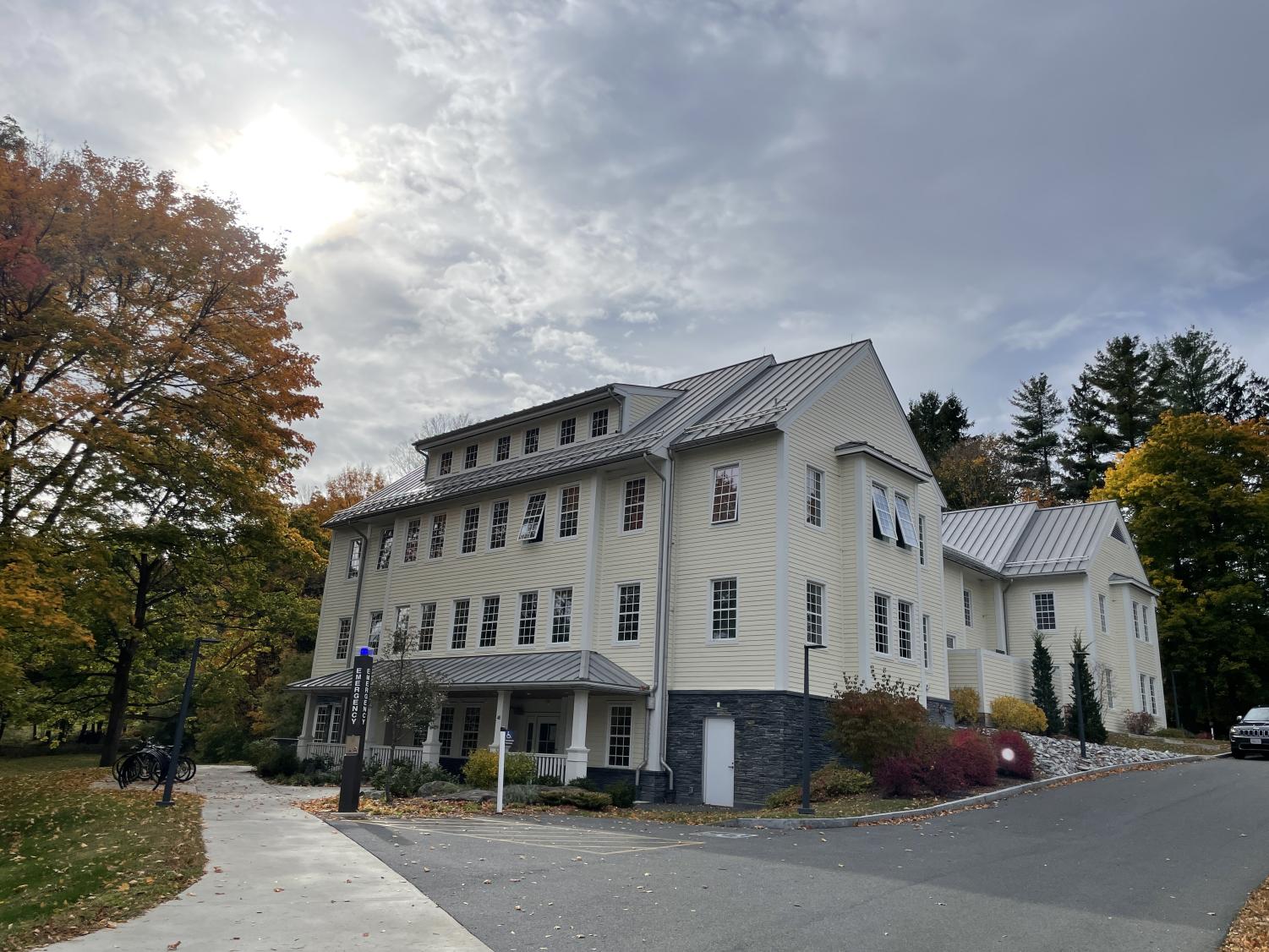Sustainability TAPSI house launches campus-wide compost project
October 19, 2022

The Sustainable Living Community (SLC) will provide metal compost bins to upperclass dorm kitchens across campus this semester. Rebekah Lindsay ’25, who is one of the Community Coordinators (CC) for the SLC — one of the College’s Theme/Affinity/Program/Special Interest (TAPSI) houses — told the Record that the move, which was announced in a Daily Message, is a response to the College’s removal of compost bins in residential areas for this academic year. The SLC said it hopes to expand the project to first-year dorms and co-ops.
A provision to fund campus-wide composting was included in Facilities’ budget request for the 2023 fiscal year, but the provision was not approved, Tanja Srebotnjak and Mike Evans, the director and deputy director for the Zilkha Center for Environmental Initiatives, respectively, wrote to the Record. They added that the Zilkha Center — whose staff also serve as TAPSI advisors for the SLC — was told that “cross-departmental budget growth would have substantially exceeded rates deemed sustainable.”
Instead of only advocating for the College to reimplement campus-wide composting for the next academic year and including a provision for such a project in future budgets, the SLC decided to channel its efforts towards starting its own initiative this semester. “It’s definitely not the biggest issue environmentally, but small things added together can create a lot of change, especially considering the amount of waste we create from being here on campus,” Lindsay said.
Lindsay said that she hopes the All-Campus Compost — a form of “actionable protest” against the current lack of accessible compost bins — will demonstrate to the College that students care about composting and reducing food waste enough to take matters into their own hands. The project will be entirely student-run: Bins for each dorm will be purchased using funding from the SLC’s annual budget with the help of Residential Directors, who have agreed to match the SLC’s funding contributions. And, while dorms’ custodians are aware of the project, they are not responsible for the bins’ maintenance, which will be managed by student volunteers — including residents of the SLC, members of Williams Recovery of All Perishable Surplus (WRAPS), and other students on campus who elect to help with the initiative — who will transport dorms’ compost to the large compost bins in College dining halls each week.
The SLC plans to approximate the average weight of a full compost bin — and even slightly underestimate it, to avoid inflating their metrics — in order to assess how much compost the College produces each week. The SLC also hopes to use this data to monitor the College’s compliance with a 2014 ban by the Massachusetts Department of Environmental Protection (MassDEP) that prohibits the disposal of one or more tons of food waste each week by businesses or institutions like the College. On Nov. 1, MassDEP will lower this threshold to half a ton of food waste per week in the interest of reducing state-wide disposal by 30 percent over the next decade.
Though Srebotnjak and Evans noted that Zilkha Center staff are in contact with RecyclingWorks Massachusetts — a recycling assistance program focused on institutions’ waste reduction and funded by MassDEP — to better understand the update to the threshold, they expect that the College’s waste production is greater than one half-ton. From January through September, Dining Services collected — and diverted from trash to compost — an average 0.72 tons of food waste and compostable products per week, according to Srebotnjak and Evans. To be in compliance with the new threshold, the College must confirm that the non-diverted amount of compostables is under one half-ton per week, and the College will conduct a waste audit of campus trash bins to do so.
Students around campus have already voiced their support for the new initiative. Samuel Lang ’22.5, a former resident of the 2021- 22 sustainability-themed TAPSI house, recounted that there were two compost bins in Hubbell House last year and expressed enthusiasm for a compost bin in his dorm kitchen this year. “I hope this composting project is a first step towards addressing the campus community in helping them think about waste sorting and where their trash ends up,” he wrote in an email to the Record. “It’s personally exhausting seeing college students put waste paper, food scraps, single-use plastics, etc. in the recycling bin.”
Aside from advertising the initiative in the Daily Messages and dorms’ GroupMe chats this week, the SLC also plans to garner student attention and support for the initiative by hosting a kickoff event where each dorm’s residents can decorate their compost bins and learn about composting, according to Lindsay. While the program is currently limited to the upperclass dorms, students living in first-year dorms, senior co-ops, or off-campus housing are encouraged to reach out to Lindsay and the SLC’s other Community Coordinator, Gus Demerath ’25, if they are interested in getting involved with the initiative. Demerath is hopeful that “eventually every student living space that wants a small compost bin can have one,” he wrote in an email to the Record. “We hope to get as many people involved as possible!”








